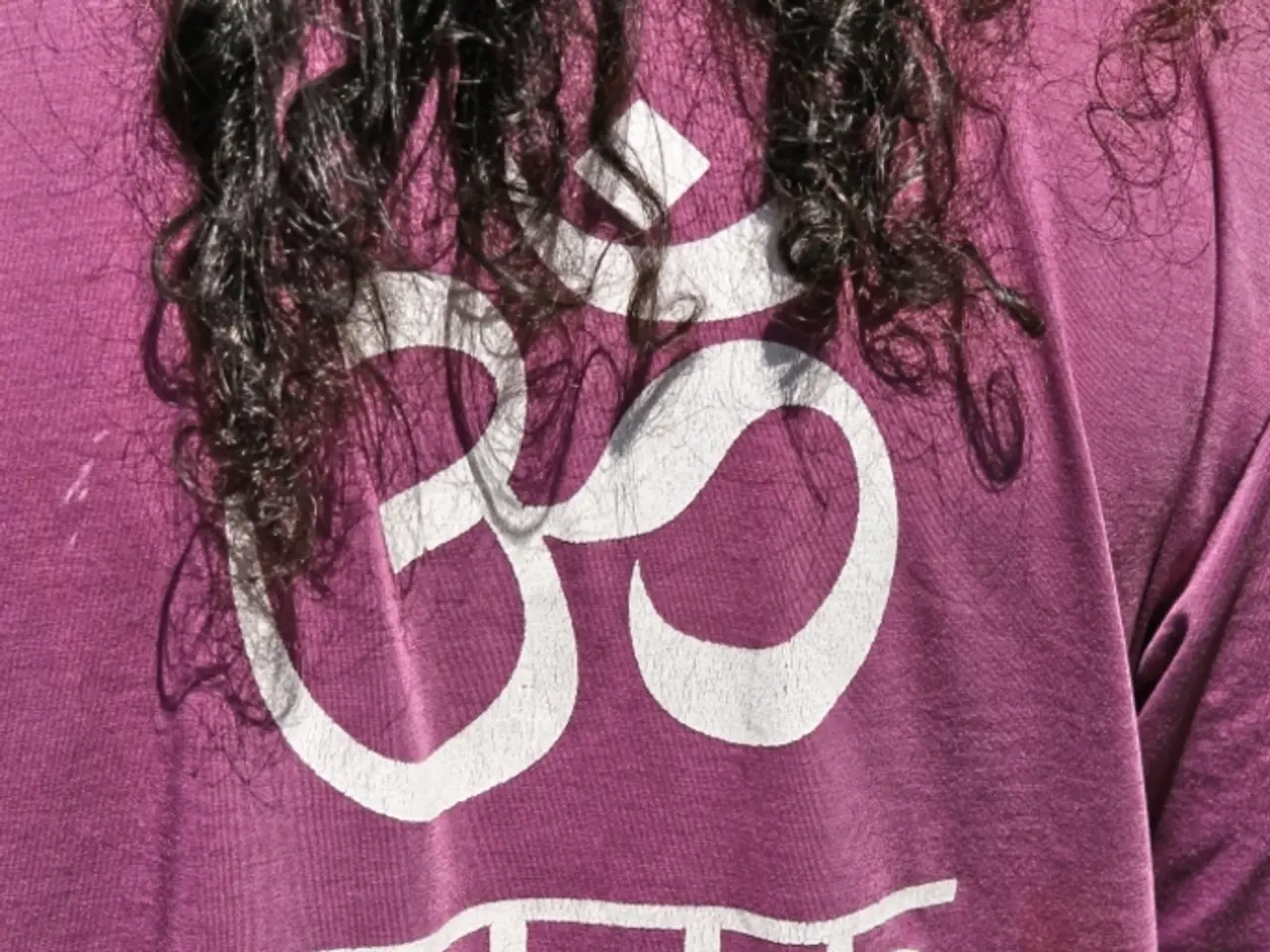Embracing Mindfulness in Everyday Life's Mundanity
In the fast-paced world of work, one individual's journey towards mindfulness has proven to be a game changer, shaping their decision-making and engagement with colleagues. Growing up in a multicultural neighbourhood and attending a yoga studio led by a teacher from India, this individual was inspired to delve deeper into mindfulness.
The ripple effect of nurturing mindfulness at work extends beyond personal gain. Mindfulness practices can contribute to a positive and enriching work culture, fostering an atmosphere where creativity can flourish. One defining moment in the individual's career was suggesting a mindfulness exercise during a hectic deadline, a decision that not only helped manage stress but also enhanced focus and productivity.
Embracing silence during brainstorming sessions can encourage unique ideas and innovative solutions. Strengthened connections through mindfulness can lead to improved collaboration and open lines of communication. Partnering up for mindfulness exercises can create a safe space where everyone feels heard and appreciated.
The best corporate wellness programs incorporating mindfulness typically emphasize practical, accessible mindfulness practices. These programs positively impact work-life balance by reducing chronic stress and improving mental well-being, enhance productivity through better focus and cognitive performance, and foster healthier team dynamics by building resilience and encouraging shared wellness activities.
Key features of successful programs include micro-mindfulness integration, wellness retreats, wellness challenges, and ongoing support. Micro-mindfulness integration involves brief, frequent mindfulness exercises that fit real-world busy schedules and remote work setups, such as 60-second breathing exercises before meetings or mindful eating prompts during breaks. These interventions reduce stress and cognitive overload, preserving focus and improving sleep quality, which supports better work-life balance and productivity.
Wellness retreats, incorporating mindfulness, yoga, and sound healing, help employees disconnect from work stress, regain mental clarity, and foster resilience. Post-retreat, employees often return with renewed purpose and energy, enhancing engagement and teamwork. Structured wellness challenges with mindfulness and emotional health components promote better coping strategies, stronger team bonding, and sustained healthy behaviors.
The individual realized that presence is key in everyday activities. Incorporating simple mindfulness practices such as setting intentions, taking mindful breaks, and gratitude journaling has improved the individual's productivity and well-being. Active listening and being fully present during mindfulness exercises can build deeper relationships with colleagues.
Life, the individual learned, isn't merely a checklist of tasks but a journey to be enjoyed. Accessing external sources can provide a wealth of additional details and a new viewpoint on the topic. The best corporate wellness programs, by emphasizing mindfulness, are proving that work can indeed be a rewarding and enjoyable part of this journey.
[1] Hölzel, B. K., Lazar, S. W., Gard, T., Schuman-Olivier, Z., Vago, D. R., & Ott, U. (2011). How does mindfulness meditation work? Proposing mechanisms of action from a conceptual and neural perspective. Perspectives on Psychological Science, 6(6), 670-686.
[2] Khoury, J. P., & Khoury, R. (2014). The role of mindfulness in organizational change and development: A systematic review. Journal of Organizational Change Management, 27(5), 733-753.
[3] Kabat-Zinn, J. (2003). Mindfulness-based interventions in context: Past, present, and future. Clinical Psychology: Science and Practice, 10(2), 144-156.
[4] Salovey, P., & Walton, G. M. (2016). Emotional intelligence and its relevance to the study of leadership. The Leadership Quarterly, 27(1), 1-10.
- The individual's journey towards mindfulness, shaped by a multicultural upbringing and yoga practice, has been a game changer, impacting their decision-making and relationships with colleagues.
- Mindfulness practices can foster a positive and enriching work culture, contributing to creativity, improved collaboration, and open communication.
- Mindfulness exercises, even during hectic deadlines, can help manage stress, enhance focus, and boost productivity.
- Embracing silence during brainstorming sessions can stimulate unique ideas and innovative solutions, making work culture more conducive to creativity and productivity.
- Successful corporate wellness programs focus on accessible mindfulness practices, reducing chronic stress, improving mental well-being, and enhancing productivity.
- Key features of such programs include micro-mindfulness integration, wellness retreats, wellness challenges, and ongoing support, providing stress relief, cognitive improvement, and better team dynamics.
- Practicing mindfulness regularly through setting intentions, taking mindful breaks, and gratitude journaling can improve productivity and well-being, making work a more enjoyable and rewarding part of life.
- By emphasizing mindfulness, corporate wellness programs are shifting the narrative towards viewing work as a journey to be enjoyed, supported by evidence from studies like [1], [2], [3], and [4].






